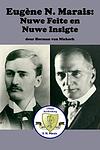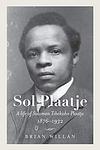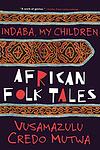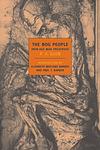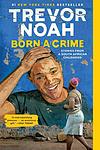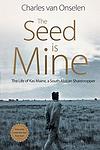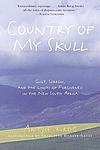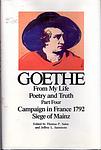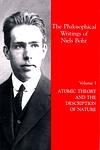The Greatest Danish, South African "Nonfiction" Books Since 1900
Click to learn how this list is calculated.
This list represents a comprehensive and trusted collection of the greatest books. Developed through a specialized algorithm, it brings together 300 'best of' book lists to form a definitive guide to the world's most acclaimed books. For those interested in how these books are chosen, additional details can be found on the rankings page.
Genres
Countries
Date Range
Reading Statistics
Click the button below to see how many of these books you've read!
Download
If you're interested in downloading this list as a CSV file for use in a spreadsheet application, you can easily do so by clicking the button below. Please note that to ensure a manageable file size and faster download, the CSV will include details for only the first 500 books.
Download-
1. Out of Africa by Isak Dinesen
The book is a memoir that recounts the author's experiences and observations living in Kenya, then British East Africa, from 1914 to 1931. It is a lyrical meditation on her life amongst the diverse cultures and wildlife of Africa. The author shares her trials and tribulations of running a coffee plantation, her deep respect for the people and land of Africa, and her intimate understanding of the subtle nuances of African culture and society.
-
2. Long Walk To Freedom by Nelson Mandela
"Long Walk to Freedom" is a powerful autobiography that chronicles the extraordinary life of Nelson Mandela. From his humble beginnings in a rural village to becoming the first black president of South Africa, Mandela's journey is one of resilience, determination, and unwavering commitment to justice and equality. Through his personal experiences, he provides a vivid account of the struggle against apartheid, his 27 years of imprisonment, and the eventual triumph of democracy. This book serves as an inspiring testament to Mandela's unwavering spirit and his lifelong fight for freedom and human rights.
-
3. Down Second Avenue by Es'kia Mphahlele
"Down Second Avenue" is a semi-autobiographical account of a black man's life under apartheid in South Africa. The narrative chronicles the protagonist's journey from childhood to adulthood, detailing his experiences with poverty, discrimination, and the struggle for education. Despite the harsh realities of life under apartheid, the protagonist's resilience and determination shine through, offering a poignant and powerful critique of the socio-political realities of the time.
-
4. Kaffir Boy by Mark Mathabane
This autobiography tells the story of a young boy growing up in apartheid-era South Africa. Despite enduring extreme poverty, brutal police raids, and constant racial discrimination, the protagonist manages to escape his harsh reality through education and tennis. His determination and resilience eventually lead him to receive a scholarship to an American university, providing him a chance to escape the oppressive system of apartheid.
-
5. The Battle with the Slum by Jacob A. Riis
"The Battle with the Slum" is a historical documentation of the living conditions in the slums of New York City during the late 19th and early 20th century. The author, a social reformer and journalist, provides a detailed account of the overcrowded and unsanitary conditions that the city's poor were subjected to. The book also highlights the efforts of the government and philanthropists to improve these conditions and eradicate the slums, emphasizing the importance of housing reform and social welfare in urban development.
-
6. Early Spring by Tove Ditlevsen
"Early Spring" is a poignant autobiographical account of a young girl's coming of age in a working-class neighborhood of Copenhagen during the 1920s and 1930s. The narrative delves into the complexities of her family life, her struggles with identity and self-worth, and her passionate pursuit of writing as a means of escape and self-expression. The book captures the emotional landscape of the protagonist as she navigates the challenges of adolescence, the pressures of societal expectations, and her own burgeoning literary ambitions, all set against the backdrop of a changing Denmark. Through her introspective and lyrical prose, the story offers a deeply personal exploration of growth, resilience, and the relentless pursuit of one's dreams amidst adversity.
-
7. Die Siel Van Die Mier by Eugene Marais
"Die Siel Van Die Mier" by Eugene Marais is a profound exploration of the life and behavior of ants, delving into their intricate social structure and the complex workings of their colonies. Marais's scientific observations are interwoven with philosophical musings, as he contemplates the parallels between ant society and human society, ultimately offering a thought-provoking reflection on the nature of existence and the interconnectedness of all living beings.
-
8. Native Life In South Africa by Sol Plaatje
"Native Life In South Africa" is a firsthand account of the experiences and struggles of the native African population in South Africa during the early 20th century. The author, Sol Plaatje, provides a powerful and insightful narrative that sheds light on the social, political, and economic injustices faced by the indigenous people under the oppressive system of colonialism. Through his vivid descriptions and personal anecdotes, Plaatje highlights the resilience and determination of the native population in their fight for equality and justice.
-
9. Indaba, My Children by Vusamazulu Credo Mutwa
"Indaba, My Children" is a captivating and enlightening collection of African folklore, myths, and legends, passed down through generations. Through vivid storytelling, the book explores the rich cultural heritage of Africa, delving into topics such as creation stories, ancestral spirits, and the power of dreams. With a blend of wisdom, spirituality, and historical insights, the author invites readers to embark on a journey of discovery, offering a deeper understanding of African traditions and the interconnectedness of all living beings.
-
10. Dependency by Tove Ditlevsen
"Dependency" is the harrowing autobiographical account of a woman's struggle with addiction and the complexities of her personal life in mid-20th-century Copenhagen. Through a raw and intimate narrative, the book explores the protagonist's turbulent relationships, her quest for love and artistic recognition, and her descent into drug dependency. The memoir provides a candid look at the cycles of abuse and recovery, painting a poignant portrait of a woman grappling with her inner demons and societal expectations in a time when such topics were often taboo.
-
11. The Copenhagen Trilogy: Childhood; Youth; Dependency by Tove Irma Margit Ditlevsen, Tiina Nunnally, Michael Favala Goldman
"The Copenhagen Trilogy" is a collection of three autobiographical novels by Tove Ditlevsen, chronicling her life from childhood to adulthood in Copenhagen. The first book, "Childhood," explores Ditlevsen's difficult upbringing in a working-class family, while "Youth" delves into her teenage years and early adulthood, including her struggles with addiction and mental illness. The final book, "Dependency," examines Ditlevsen's relationships and her battle with addiction, culminating in her eventual recovery. Through her candid and introspective writing, Ditlevsen offers a poignant and powerful portrayal of the human experience.
-
12. The Bog People by P.V. Glob
"The Bog People" explores the fascinating archaeological discoveries of remarkably preserved human bodies found in the peat bogs of Northern Europe. Written by an esteemed archaeologist, the book delves into the Iron Age context of these finds, examining the clothing, artifacts, and ritualistic evidence surrounding the bodies. The author offers insights into the possible cultural and religious reasons behind the bog burials, suggesting that these were not merely accidental deaths but rather deliberate deposits, possibly sacrifices. Rich in detail and engagingly written, the book provides a window into a mysterious past where life, death, and belief systems intertwine in the damp moors of ancient Europe.
-
13. Born A Crime by Trevor Noah
"Born A Crime" is a captivating memoir that chronicles the life of Trevor Noah, a South African comedian and television host. Set during the apartheid era, the book explores Noah's experiences as a mixed-race child growing up in a society where interracial relationships were illegal. With humor and insight, Noah recounts his struggles with identity, poverty, and racism, while also highlighting the resilience and strength of his mother who played a pivotal role in his life. This thought-provoking memoir offers a compelling and personal perspective on race, family, and the power of laughter in the face of adversity.
-
14. The Seed Is Mine by Charles Van Onselen
"The Seed Is Mine" is a historical non-fiction book that explores the life of a black South African named Klaas, who lived through the tumultuous years of apartheid. Through extensive research and interviews, the author delves into Klaas' personal experiences, struggles, and aspirations, shedding light on the complex dynamics of race, class, and power during this period. The book offers a poignant and intimate portrayal of one man's fight for dignity and justice amidst a system designed to suppress and oppress.
-
15. Country Of My Skull by Antjie Krog
"Country Of My Skull" is a powerful and deeply personal account of the author's experiences as a journalist covering the Truth and Reconciliation Commission in post-apartheid South Africa. Through her vivid and introspective narrative, the author explores the complexities of forgiveness, justice, and the collective healing process of a nation grappling with its painful past. This thought-provoking book offers a unique perspective on the complexities of reconciliation and the enduring impact of trauma on individuals and societies.
-
16. Boyhood: Scenes from provincial life by J M Coetzee
"Boyhood: Scenes from Provincial Life" is a semi-autobiographical novel that explores the author's childhood in South Africa during the apartheid era. The narrative delves into the complexities of family dynamics, racial tension, and the struggle of a young boy trying to understand his place in a divided society. The protagonist grapples with his identity, torn between his Afrikaner heritage and his English schooling, while also navigating the trials of adolescence. The book offers a poignant and often painful reflection on the formative years of a boy growing up in a fraught and turbulent time.
-
17. Discussion with Einstein on Epistemology by Niels Bohr
This book is a detailed account of the intellectual exchange between two of the greatest physicists of the 20th century. It explores their contrasting views on quantum theory and the philosophical implications of their work. The book provides a deep insight into their debates on the fundamental nature of reality, the role of the observer in physics, and the limits of human knowledge. It's a profound exploration of the intersection between physics and philosophy.
-
18. Atomic Theory and the Description of Nature by Niels Bohr
This book is a collection of four lectures given by the author, a renowned physicist, on the philosophical implications of quantum mechanics. He discusses the fundamental principles of quantum theory, its philosophical implications, and its impact on the understanding of nature, arguing that the atomic theory has fundamentally changed our perception of reality. The book also delves into the author's belief that a complementary perspective, which involves both a particle view and a wave view, is necessary to fully understand quantum phenomena.
-
19. How To Spend $50 Billion To Make The World A Better Place by Bjørn Lomborg
This book presents a thought-provoking analysis on the most effective ways to utilize a hypothetical budget of $50 billion to address global challenges. The author, leveraging insights from leading economists and experts, prioritizes various interventions—from healthcare and education to climate change mitigation—based on their potential to deliver the greatest benefits to humanity. Through a rigorous cost-benefit analysis, the text challenges readers to think critically about the allocation of resources in tackling the world's most pressing issues, advocating for evidence-based solutions that promise the highest returns on investment for improving global welfare.
-
20. The Living Thoughts Of Kierkegaard by Soren Kierkegaard
"The Living Thoughts of Kierkegaard" presents a curated selection of the philosophical ideas of the renowned Danish philosopher, focusing on his concepts of individuality, existentialism, and the human condition. The book distills Kierkegaard's thoughts on how individuals must confront their own subjective realities and the existential choices that define their lives. Through a series of reflections and analyses, it explores themes of anxiety, faith, and morality, encouraging readers to reflect deeply on their personal existence and the philosophical underpinnings that influence their daily decisions and beliefs.
Reading Statistics
Click the button below to see how many of these books you've read!
Download
If you're interested in downloading this list as a CSV file for use in a spreadsheet application, you can easily do so by clicking the button below. Please note that to ensure a manageable file size and faster download, the CSV will include details for only the first 500 books.
Download





